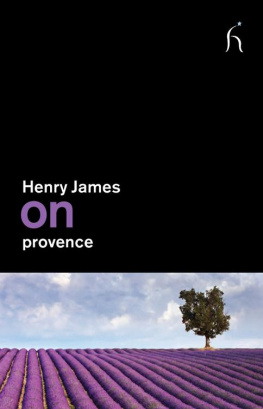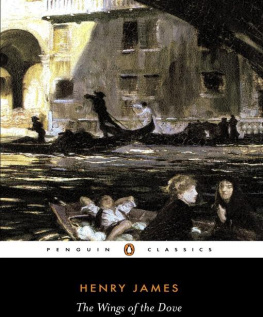We good Americans I say it without presumption are too apt to think that France is Paris, just as we are accused of being too apt to think that Paris is the celestial city. This is by no means the case, fortunately for those persons who take an interest in modern Gaul, and yet are still left vaguely unsatisfied by that epitome of civilization which stretches from the Arc de Triomphe to the Gymnase theatre. It had already been intimated to the author of these light pages that there are many good things in the doux pays de France of which you get no hint in a walk between those ornaments of the capital; but the truth had been revealed only in quick-flashing glimpses, and he was conscious of a desire to look it well in the face. To this end he started, one rainy morning in mid-September, for the charming little city of Tours, from which point it seemed possible to make a variety of fruitful excursions. His excursions resolved themselves ultimately into a journey through several provinces a journey which had its dull moments (as one may defy any journey not to have), but which enabled him to feel that his proposition was demonstrated. France may be Paris, but Paris is not France; that was perfectly evident on the return to the capital.
I must not speak, however, as if I had discovered the provinces . They were discovered, or at least revealed by Balzac, if by anyone, and are now easily accessible to visitors. It is true, I met no visitors, or only one or two, whom it was pleasant to meet. Throughout my little tour I was almost the only tourist. That is perhaps one reason why it was so successful.
At Narbonne I took up my abode at the house of a serrurier mcanicien, and was very thankful for the accommodation. It was my misfortune to arrive at this ancient city late at night, on the eve of market day; and market day at Narbonne is a very serious affair. The inns, on this occasion, are stuffed with wine-dealers; for the country roundabout, dedicated almost exclusively to Bacchus, has hitherto escaped the phylloxera. This deadly enemy of the grape is encamped over the Midi in a hundred places; blighted vineyards and ruined proprietors being quite the order of the day. The signs of distress are more frequent as you advance into Provence, many of the vines being laid under water, in the hope of washing the plague away. There are healthy regions still, however, and the vintners find plenty to do at Narbonne. The traffic in wine appeared to be the sole thought of the Narbonnais; everyone I spoke to had something to say about the harvest of gold that bloomed under its influence. Cest inou, Monsieur, largent quil y a dans ce pays. Des gens a qui la vente de leur vin rapporte jusqu 500,000 francs par an. That little speech, addressed to me by a gentleman at the inn, gives the note of these revelations. It must be said that there was little in the appearance either of the town or of its population to suggest the possession of such treasures. Narbonne is a sale petite ville in all the force of the term, and my first impression on arriving there was an extreme regret that I had not remained for the night at the lovely Carcassonne. My journey from that delectable spot lasted a couple of hours, and was performed in darkness, a darkness not so dense, however, but that I was able to make out, as we passed it, the great figure of Bziers, whose ancient roofs and towers, clustered on a goodly hilltop, looked as fantastic as you please. I know not what appearance Bziers may present by day; but by night it has quite the grand air. On issuing from the station at Narbonne, I found that the only vehicle in waiting was a kind of bastard tramcar, a thing shaped as if it had been meant to go upon rails; that is, equipped with small wheels, placed beneath it, and with a platform at either end, but destined to rattle over the stones like the most vulgar of omnibuses. To complete the oddity of this conveyance, it was under the supervision, not of a conductor, but of a conductress. A fair young woman, with a pouch suspended from her girdle, had command of the platform; and as soon as the car was full she jolted us into the town through clouds of the thickest dust I ever have swallowed. I have had occasion to speak of the activity of women in France, of the way they are always in the ascendant; and here was a signal example of their general utility. The young lady I have mentioned conveyed her whole company to the wretched little Htel de France, where it is to be hoped that some of them found a lodging. For myself, I was informed that the place was crowded from cellar to attic, and that its inmates were sleeping three or four in a room. At Carcassonne I should have had a bad bed, but at Narbonne, apparently, I was to have no bed at all. I passed an hour or two of flat suspense, while fate settled the question of whether I should go on to Perpignan, return to Bziers, or still discover a modest couch at Narbonne. I shall not have suffered in vain, however, if my example serves to deter other travellers from alighting unannounced at that city on a Wednesday evening. The retreat to Bziers, not attempted in time, proved impossible, and I was assured that at Perpignan, which I should not reach till midnight, the affluence of wine-dealers was not less than at Narbonne. I interviewed every hostess in the town, and got no satisfaction but distracted shrugs. Finally, at an advanced hour, one of the servants of the Htel de France, where I had attempted to dine, came to me in triumph to proclaim that he had secured for me a charming apartment in a maison bourgeoise. I took possession of it gratefully, in spite of its having an entrance like a stable, and being pervaded by an odor compared with which that of a stable would have been delicious. As I have mentioned, my landlord was a locksmith, and he had strange machines which rumbled and whirred in the rooms below my own. Nevertheless, I slept, and I dreamed of Carcassonne. It was better to do that than to dream of the Htel de France.
I was obliged to cultivate relations with the cuisine of this establishment. Nothing could have been more meridional; indeed, both the dirty little inn and Narbonne at large seemed to me to have the infirmities of the south, without its usual graces. Narrow, noisy, shabby, belittered and encumbered, filled with clatter and chatter, the Htel de France would have been described in perfection by Alphonse Daudet. For what struck me above all in it was the note of the Midi, as he has represented it the sound of universal talk. The landlord sat at supper with sundry friends, in a kind of glass cage, with a genial indifference to arriving guests; the waiters tumbled over the loose luggage in the hall; the travellers who had been turned away leaned gloomily against doorposts; and the landlady, surrounded by confusion, unconscious of responsibility, and animated only by the spirit of conversation, bandied high-voiced compliments with the voyageurs de commerce. At ten oclock in the morning there was a table dhte for breakfast, a wonderful repast, which overflowed into every room and pervaded the whole establishment. I sat down with a hundred hungry marketers, fat, brown, greasy men, with a good deal of the rich soil of Languedoc adhering to their hands and their boots. I mention the latter articles because they almost put them on the table. It was very hot, and there were swarms of flies; the viands had the strongest odor; there was in particular a horrible mixture known as gras-double, a light gray, glutinous, nauseating mess, which my companions devoured in large quantities. A man opposite to me had the dirtiest fingers I ever saw; a collection of fingers which in England would have excluded him from a farmers ordinary. The conversation was mainly bucolic; though a part of it, I remember, at the table at which I sat, consisted of a discussion as to whether or not the maid-servant were











